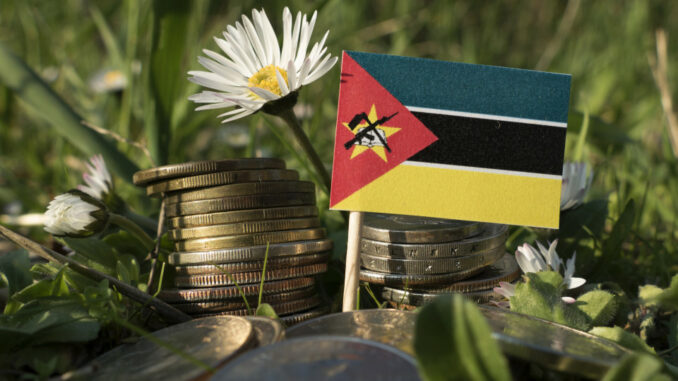
Venâncio Mondlane, a presidential candidate and leader of the most significant challenge to Mozambique’s electoral results since the country’s first democratic elections in 1994, has proposed sweeping changes, including revising the national flag and Constitution.
Speaking during a live broadcast on Facebook, Mondlane stated: “Next year, we want a new flag in Mozambique, and this weapon must be removed. The flag represents the spirit of a people, and if there’s still a weapon on it, it reflects an armed mentality we need to move beyond”.
Mondlane’s remarks come amidst nationwide protests contesting the electoral results, which have plunged Mozambique into turmoil. Since October 21, these demonstrations have led to nearly 300 deaths, with violent clashes between protesters and police intensifying after the results were announced on December 25. Mondlane, currently operating from abroad, has emerged as a central figure in the unrest, galvanizing opposition to what he and his supporters view as a flawed electoral process.
In his speech, Mondlane announced plans to launch an open contest for new flag designs by January 10, advocating for symbols that better represent Mozambique’s aspirations for peace and progress. Alongside this initiative, he called for a constitutional overhaul, emphasizing the need for locally elected district and neighborhood leaders across all provinces.
“All institutions, from local administrations to provincial governments, are suspended. The people must choose their true leaders,” Mondlane declared, adding that a proposed draft for a new Constitution would be presented by January 15.
Mondlane also criticized the persistence of “communist” references in the country’s public spaces, highlighting avenues in Maputo named after figures like Kim Il-Sung and Mao Tse-Tung as outdated and inconsistent with Mozambique’s current aspirations.
Furthermore, he claimed that several former leaders from the Southern African region have offered to mediate the growing political crisis, but accused the ruling party, FRELIMO, of resisting negotiations. “The government has shown no interest in dialogue,” Mondlane said.
The protests have drawn global attention as the most violent post-election unrest in Mozambique’s history. According to a report by the electoral platform Decide, released on December 29, at least 277 people have died, with half of the fatalities occurring after the controversial results were made public.
Mondlane’s proposals signal a broader call for systemic reform in Mozambique, as the country grapples with deepening divisions over its democratic processes and governance.
